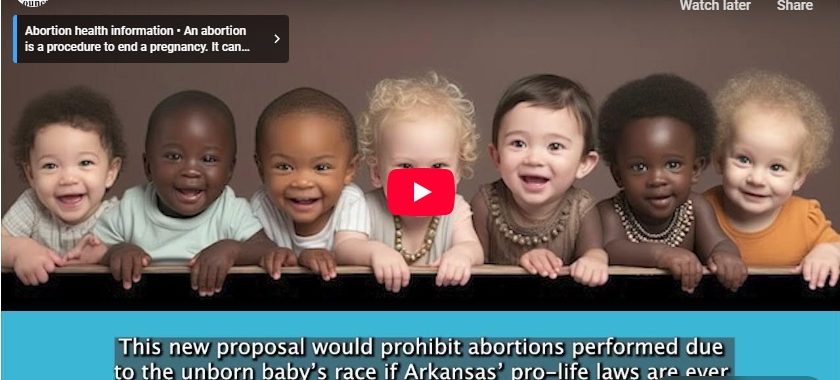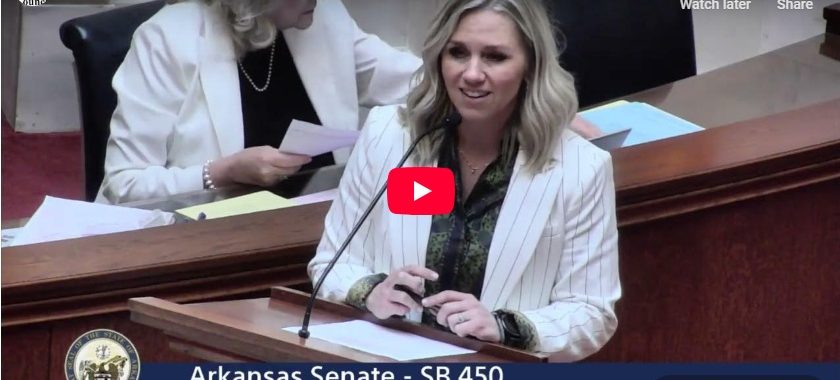Arkansas Senate Passes Good Ultrasound Education Bill
On Tuesday the Arkansas Senate passed a good bill to help teach public school students about unborn children.
S.B. 450 by Sen. Breanne Davis (R — Russellville) and Rep. Kendra Moore (R — Lincoln) lets public school students see a recording of a high-definition ultrasound video as part of human fetal growth and development education courses.
The bill also lets students learn important facts about how unborn children develop in the womb.
S.B. 450 passed with overwhelming support in the Arkansas Senate on Tuesday afternoon. The bill now goes to the Arkansas House of Representatives for consideration.
As we have said time and again, ultrasound images help demonstrate that unborn children are human beings.
Very few medical advancements have done more to change hearts and minds on abortion than ultrasound technology. In fact, research has shown that some women are less likely to have an abortion if they see an ultrasound image of their unborn child.
That is why Family Council is pleased to support S.B. 450.
The Following Senators Voted FOR S.B. 450
- J. Boyd
- J. Bryant
- A. Clark
- Crowell
- B. Davis
- Dees
- J. Dismang
- J. Dotson
- J. English
- Flippo
- Gilmore
- K. Hammer
- Hester
- Hickey
- Hill
- Irvin
- B. Johnson
- M. Johnson
- B. King
- M. McKee
- J. Payton
- C. Penzo
- J. Petty
- Stone
- G. Stubblefield
- D. Wallace
The Following Senators Voted Against S.B. 450
- S. Flowers
- G. Leding
- F. Love
- R. Murdock
- J. Scott
- C. Tucker
The Following Senators Voted “Present”
- Caldwell
- Rice
- D. Sullivan
Articles appearing on this website are written with the aid of Family Council’s researchers and writers.
Triple Feature: Lawmakers File a Third Fetal Education Bill

On Tuesday, lawmakers in Little Rock filed a third measure to help educate public school students about human fetal growth and development.
Below is a brief overview of all three measures.
H.B. 1180 by Rep. Mary Bentley (R — Perryville) and Sen. Clint Penzo (R — Springdale) ensures public schools show students a high-definition ultrasound video that is at least three minutes long as part of sex-education and human growth and development education courses. The bill also ensures students see a video like Live Action’s computer-animated “Meet Baby Olivia” video that teaches about human development from conception to birth.
The Arkansas House of Representatives passed H.B. 1180, but the Arkansas Senate has not.
S.B. 450 by Sen. Breanne Davis (R — Russellville) and Rep. Kendra Moore (R — Lincoln) makes it possible for public school students to see a recording of a high-definition ultrasound video as part of human fetal growth and development education courses. The bill also contains provisions letting students learn important facts about how unborn children develop in the womb.
The Arkansas Senate passed S.B. 450 on Tuesday, and the bill has been sent to the Arkansas House of Representatives for consideration.
H.B. 1946 — which Rep. Mary Bentley (R — Perryville) and Sen. Clint Penzo (R — Springdale) filed on Tuesday — requires public schools to provide human growth and development education in grades 6 – 12 every school year. The bill requires the courses to include a three-minute high-definition ultrasound video and a high-quality, computer animated video depicting the process of fertilization and every stage of fetal development. Under H.B. 1946, this instruction would be included in biology instruction and in courses related to sex-education.
H.B. 1946 is expected to be referred to the House Education Committee for a vote.
It’s good to see lawmakers taking a strong interest in teaching public school students about unborn children.
Ultrasound technology provides what some people call a “window into the womb” that demonstrates that unborn children are living human beings. Good bills like H.B. 1180, S.B. 450, and H.B. 1946 help students understand that.
Articles appearing on this website are written with the aid of Family Council’s researchers and writers.



